Hotline Miami 2: Wrong Number Review
March 10, 2015 | 15:26
Companies: #dennaton-games #devolver-digital

The problems arise from Dennaton's attempt to invert the narrative structure of the original. The first game began in the glitzy yet grotty reality of Miami's criminal gangs being taken down by a bloodthirsty vigilante, and then led you to question that reality as the game went on. It left you feeling on the very edge of understanding the events it presented, but always pulled the solution away at the last minute. I think Hotline Miami 2 aims to do the opposite, to start off fragmented and uncertain, and then bring everything together, only it never achieves this. It never establishes a rhythm. Indeed it seems to delight in upsetting any rhythm that begins to emerge. By the halfway point I was so confused I wasn't sure if I was supposed to understand what was happening.
In its broader storytelling, then, Hotline Miami 2 is an experimental failure. But when playing individual levels Hotline Miami 2 is a far more traditional sequel; mostly the same with a few new bits. The differently powered masks make a return, although only a few levels let you select specific headwear. Some playable characters don't use masks at all, while during the copycat gang levels you select one of four characters instead. These include Tony, who wears a tiger mask, has lethal punches but cannot use weapons, and the homicidal duo Alex and Ash, who are equipped with a pistol and chainsaw and are controlled at the same time. Interestingly, this doubles your murderous capabilities but also gives your enemies two targets to aim for rather than one.
The expanded narrative scope of Wrong Number also means there is a lot more of it, over twice as much, in fact. Unfortunately, the game isn't anywhere near varied enough to sustain itself over the bloated running time, especially considering we've already seen most of its tricks once before. Worse, the minor innovations Dennation attempt meet with mixed success. Easily the weakest levels are the Hawaii flashbacks, as they limit you to using one ranged weapon and a knife, forcing you to pick up tiny scraps of ammo at designated points. Such limitations fly in the face of that intoxicating combination of muscle-memory and improvisation that are the essence of Hotline Miami. It's also completely arbitrary. A street-thug can think to pick up a defeated opponent's gun when he runs out of ammo, but a professional soldier can't?
Wrong Number isn't a terrible game. Considered individually, each of the story threads has potential, and I wish Dennaton followed the tale of the copycats or the journalist more closely, instead of constantly chopping and changing. Similarly, some of the stages are excellently designed. Stand outs include the final mission involving the copycats, which sees you switching between all of them at different points, a fiendishly difficult prison escape, and a spectacular gunfight in a bank. Oh, and the soundtrack is once again excellent, with artists like M.O.O.N and Perturbator returning with new contributions.
As a sequel, however, Wrong Number is disappointing. It's even a little looser mechanically. Thugs tend to get stuck in doors, while there's a recurring bug which sees guard dogs spin around in a circle, as if they're endlessly chasing their tails. Another issue is that the size of some of the later levels makes it pretty easy to dispatch opponents from a distance without alerting other guards to your presence.
This latter point encapsulates Wrong Number's greatest flaw, which is that it stretches its concept to the point of collapse. There were certainly moments when I was as breathlessly excited as the original so often made me, such as after punching out half a building's worth of gangsters as Tony, or in the midst of barrelling through a police station, evading the gunfire of a small army of cops. But there were equally as many times when I felt hopelessly lost in its baffling stew of a story, and frankly I finished it more out of stubbornness than enjoyment. In the end, Wrong Number proves to be more apt a subtitle than I hoped.
In its broader storytelling, then, Hotline Miami 2 is an experimental failure. But when playing individual levels Hotline Miami 2 is a far more traditional sequel; mostly the same with a few new bits. The differently powered masks make a return, although only a few levels let you select specific headwear. Some playable characters don't use masks at all, while during the copycat gang levels you select one of four characters instead. These include Tony, who wears a tiger mask, has lethal punches but cannot use weapons, and the homicidal duo Alex and Ash, who are equipped with a pistol and chainsaw and are controlled at the same time. Interestingly, this doubles your murderous capabilities but also gives your enemies two targets to aim for rather than one.
The expanded narrative scope of Wrong Number also means there is a lot more of it, over twice as much, in fact. Unfortunately, the game isn't anywhere near varied enough to sustain itself over the bloated running time, especially considering we've already seen most of its tricks once before. Worse, the minor innovations Dennation attempt meet with mixed success. Easily the weakest levels are the Hawaii flashbacks, as they limit you to using one ranged weapon and a knife, forcing you to pick up tiny scraps of ammo at designated points. Such limitations fly in the face of that intoxicating combination of muscle-memory and improvisation that are the essence of Hotline Miami. It's also completely arbitrary. A street-thug can think to pick up a defeated opponent's gun when he runs out of ammo, but a professional soldier can't?
Wrong Number isn't a terrible game. Considered individually, each of the story threads has potential, and I wish Dennaton followed the tale of the copycats or the journalist more closely, instead of constantly chopping and changing. Similarly, some of the stages are excellently designed. Stand outs include the final mission involving the copycats, which sees you switching between all of them at different points, a fiendishly difficult prison escape, and a spectacular gunfight in a bank. Oh, and the soundtrack is once again excellent, with artists like M.O.O.N and Perturbator returning with new contributions.
As a sequel, however, Wrong Number is disappointing. It's even a little looser mechanically. Thugs tend to get stuck in doors, while there's a recurring bug which sees guard dogs spin around in a circle, as if they're endlessly chasing their tails. Another issue is that the size of some of the later levels makes it pretty easy to dispatch opponents from a distance without alerting other guards to your presence.
This latter point encapsulates Wrong Number's greatest flaw, which is that it stretches its concept to the point of collapse. There were certainly moments when I was as breathlessly excited as the original so often made me, such as after punching out half a building's worth of gangsters as Tony, or in the midst of barrelling through a police station, evading the gunfire of a small army of cops. But there were equally as many times when I felt hopelessly lost in its baffling stew of a story, and frankly I finished it more out of stubbornness than enjoyment. In the end, Wrong Number proves to be more apt a subtitle than I hoped.
-
Overall58 / 100


MSI MPG Velox 100R Chassis Review
October 14 2021 | 15:04

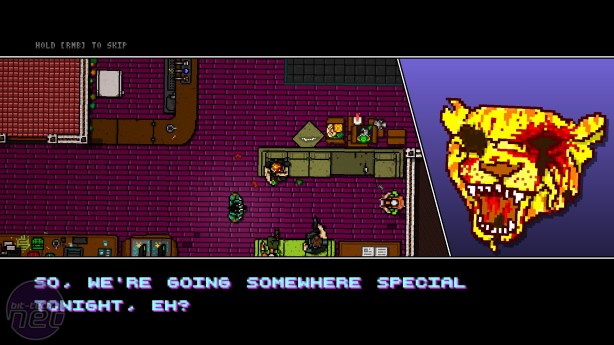
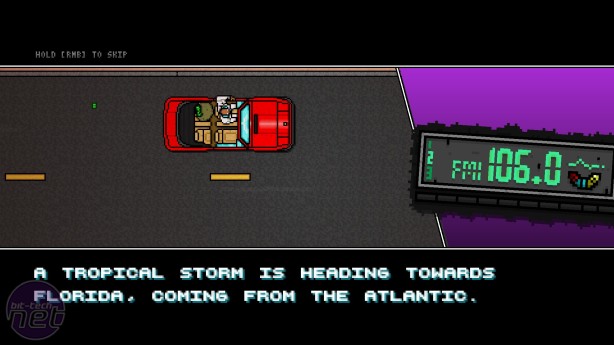
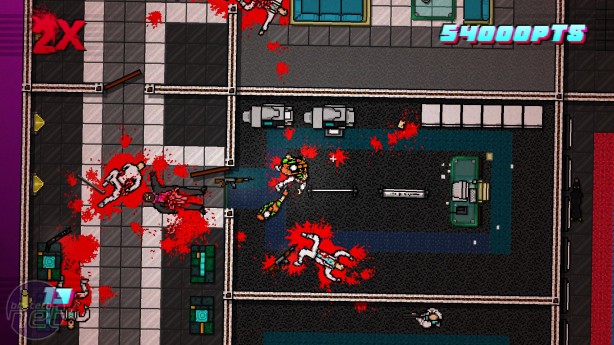
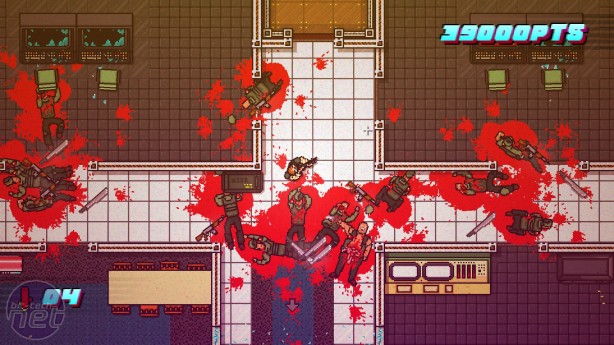
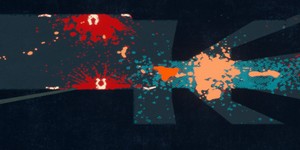
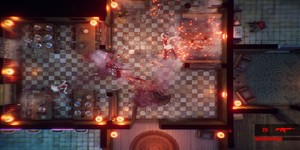
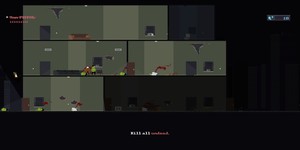





Want to comment? Please log in.